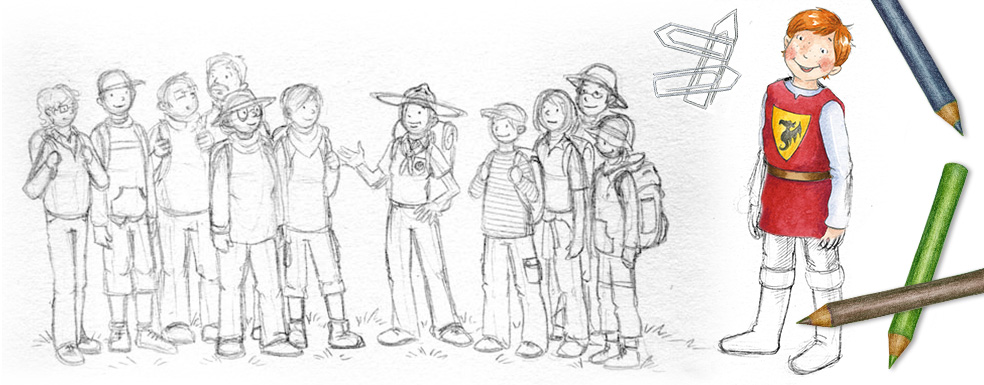
English lessons with Mortimer English Club - frequently asked questions

Why should infants learn a foreign language?
Should children learn a foreign language even if they have only just started speaking in their mother tongue?
Yes. A toddler growing up with two languages will learn to understand and speak both languages. Language development in the mother tongue is not hindered by learning a second language. In fact, the exact opposite is true. Learning a second language encourages awareness of language structure. This is demonstrated later when the child attends school and has a much better understanding of the grammar used in several different languages.
Are we asking too much of our children to learn a foreign language at such an early age?
No, our lessons are varied and child-orientated. They awaken the children’s curiosity. Children have lots of fun learning the language without any pressure to perform. When it comes to learning a language small children are true geniuses. They are capable of learning many different languages and dialects, even those which may sound very exotic to us. It is important to remember that to a baby their own mother tongue is just as much a foreign language as English. Children do not worry about grammar and vocabulary, they learn effortlessly and intuitively.
Won’t children get bored later on in school?
No. The topics of our lessons prepare children for successful learning in secondary schools. Children proudly report how well they are able to follow English lessons at school because they have already learnt to speak and understand the language freely at Mortimer. In some cases they have already learned to read and write in English. This enables them to concentrate on learning new vocabulary and grammar. Children who learn a foreign language at an early age possess a great deal of self-confidence in their own abilities. This is reflected in their excellent grades and their love of learning.
My child is already learning English at primary school. Is it still worthwhile taking part in Mortimer lessons?
Yes. Our lessons are compatible with primary school teaching syllabuses. The main advantages of our lessons are the small groups of 4–8 students, the opportunity to learn English just as you acquired your mother tongue and the teaching materials, including audio CDs featuring native English speakers. Learning in small groups guarantees that each child receives adequate attention. This means that our teachers are immediately aware if a child is having problems. Therefore, mistakes can be rectified before it’s too late. If mistakes are left uncorrected it is often only possible to put things right with the help of private tuition, which can be both expensive and time-consuming.
Children have a great opportunity to train their language abilities in small groups. Students develop excellent pronunciation skills, which is supported by regularly listening to audio CDs spoken by native English speakers. Children who learn English with Mortimer are not scared to speak up in class, which is often the case in larger groups. Primary school teachers do not have the opportunity to devote time to each pupil due to the large class sizes (25–30 children).
My child is already learning English at school. Is it still worthwhile taking part in Mortimer lessons?
Yes. It is important to remember that reading, writing, understanding, speaking and grammar are all learned simultaneously at secondary school. Many children find this too demanding and quickly lose interest. Learning a foreign language should be an enjoyable experience and not a chore. By participating in our lessons, children find that learning English can be fun – without the pressure to perform. Our teaching material is compatible with the subject matter of Year 5 classes. It is easier to teach communication skills in small groups, which in turn reduces any inhibitions the child may have or eliminates them completely.
It goes without saying that our teachers deal individually with any problems or questions the children may have. It is very difficult for teachers in secondary schools to deal effectively with every single child due to class sizes of 25–30 children. It is also very difficult to teach communication skills in such large classes. We have often experienced older children who are very good at writing and translating, but are unable to have a conversation in a foreign language because they have never had the opportunity to speak the language.
Interesting notices from Mortys World
Facelift and Update for our Teaching Materials
June 2021 – Following Book 5 and 6, Book 7 has now been completed which means our "English for Children" Set 1 and Set 2 have both been fully revised and updated.
Read more...